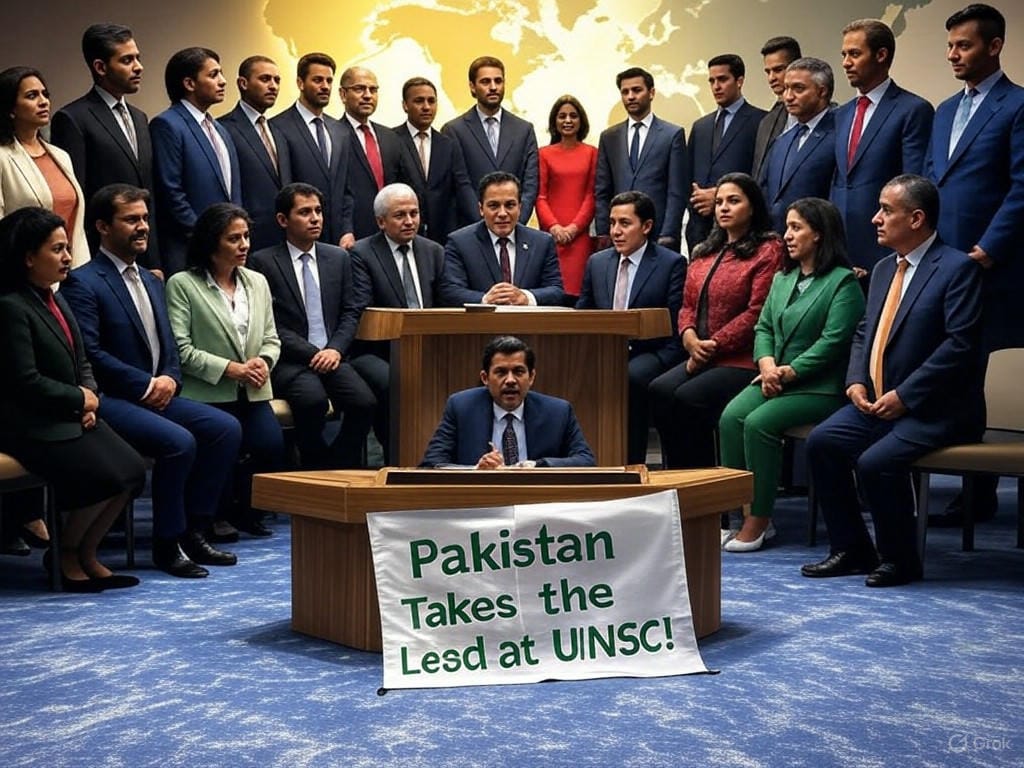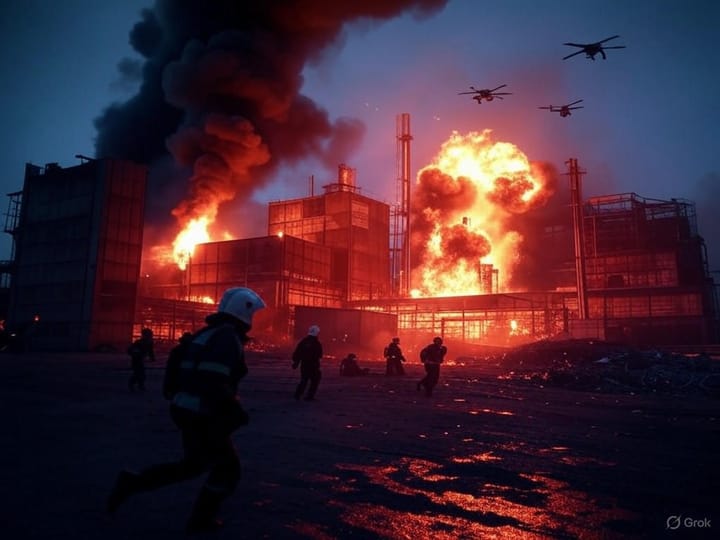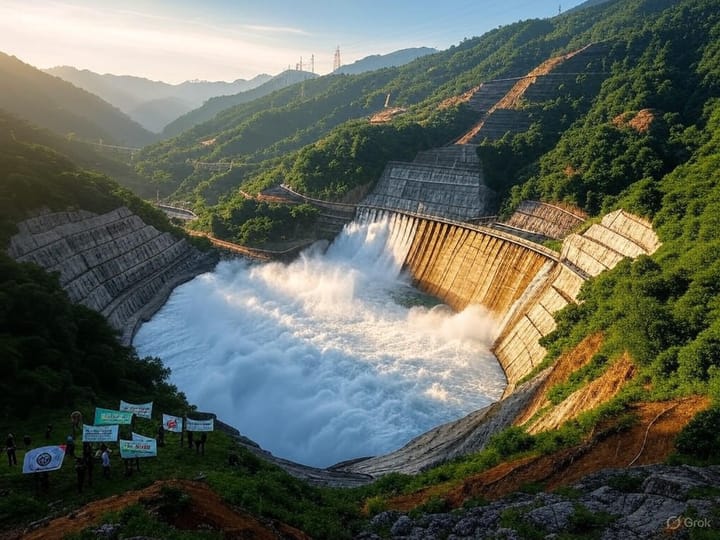Pakistan Assumes UN Security Council Presidency in July 2025, Champions Multilateralism

Pakistan has officially taken over the rotating presidency of the United Nations Security Council (UNSC) for the month of July 2025, with Ambassador Asim Iftikhar Ahmad at the helm. This marks a significant moment for the country as it seeks to advance a robust agenda focused on multilateralism, adherence to international law, addressing pressing global crises, and fostering cooperation with member states of the Organization of Islamic Cooperation (OIC). Drawing from multiple state media sources, including Radio Pakistan, Pakistan Television (PTV), and the Associated Press of Pakistan (APP), this development underscores Pakistan’s commitment to playing a constructive role on the global stage.
A Renewed Focus on Multilateralism
As the UNSC presidency rotates monthly among its 15 members, Pakistan’s assumption of the role comes at a critical juncture when the world grapples with complex geopolitical challenges. Ambassador Asim Iftikhar Ahmad, in his inaugural address at the UN headquarters in New York, emphasized multilateralism as the cornerstone of Pakistan’s approach during its tenure. According to Radio Pakistan, the ambassador stated, “In a world marked by division and conflict, multilateralism remains our best hope for collective solutions. Pakistan will prioritize dialogue and consensus-building to address the root causes of global instability.”
This focus on multilateralism aligns with Pakistan’s long-standing foreign policy principles, which advocate for equitable representation and collaborative decision-making within international forums. The Associated Press of Pakistan (APP) reported that Pakistan aims to strengthen the UNSC’s role as a platform for inclusive discussions, ensuring that the voices of smaller and developing nations are heard alongside those of major powers. Ambassador Ahmad highlighted the need to reform the UNSC to make it more representative, a stance that has resonated with many member states seeking structural changes to the body.
Upholding International Law
A key pillar of Pakistan’s presidency agenda is the reinforcement of international law as a framework for resolving disputes and maintaining global order. PTV News quoted Ambassador Ahmad as saying, “The rule of law must underpin all our efforts at the Security Council. Without adherence to international norms and treaties, peace and security remain elusive.” This commitment is particularly relevant in the context of ongoing conflicts where violations of international law have exacerbated human suffering.
Pakistan’s emphasis on international law also extends to its advocacy for the right to self-determination, a principle enshrined in the UN Charter. Radio Pakistan noted that the ambassador drew attention to unresolved issues such as the Kashmir dispute, urging the international community to address longstanding grievances through legal and diplomatic means. By placing international law at the forefront, Pakistan hopes to foster accountability and ensure that UNSC resolutions are implemented effectively, particularly in regions marred by protracted conflicts.
Addressing Pressing Global Crises
The month of July 2025 is set to witness intense deliberations at the UNSC under Pakistan’s leadership, with a particular focus on pressing global crises. From climate-induced disasters to humanitarian emergencies and armed conflicts, Pakistan has outlined an ambitious agenda to tackle these challenges head-on. According to APP, the country will convene high-level meetings on the escalating crises in regions such as the Middle East, Africa, and South Asia, with an emphasis on coordinated international responses.
One of the flagship initiatives during Pakistan’s presidency is a special session on the impact of climate change on global security. PTV News reported that Ambassador Ahmad underscored the linkage between environmental degradation and conflict, stating, “Climate change is no longer a distant threat; it is a present-day crisis that fuels displacement, resource scarcity, and instability.” Pakistan, having faced devastating floods and other climate-related disasters in recent years, brings a unique perspective to this discussion, advocating for urgent action and resource mobilization for vulnerable nations.
Additionally, Pakistan will prioritize addressing humanitarian crises, particularly in conflict zones. Radio Pakistan highlighted the ambassador’s call for enhanced UNSC engagement in ensuring unhindered access to humanitarian aid for populations in need. This includes advocating for ceasefires and peacebuilding measures in areas affected by war, with a focus on protecting civilians, especially women and children.
Strengthening Cooperation with OIC Countries
A distinctive feature of Pakistan’s UNSC presidency is its commitment to fostering greater cooperation with OIC member states. As a prominent member of the OIC, Pakistan seeks to amplify the collective voice of the Islamic world on issues of mutual concern, including Islamophobia, economic disparities, and regional security. APP reported that Ambassador Ahmad held a series of consultations with representatives from OIC countries prior to assuming the presidency, emphasizing the importance of solidarity in addressing shared challenges.
During a press briefing covered by PTV News, the ambassador outlined plans to host a thematic debate on the role of regional organizations in conflict prevention, with a special focus on the contributions of the OIC. “The OIC represents over 1.8 billion people across the globe. Its potential to contribute to peace and security must be harnessed through closer collaboration with the UNSC,” he remarked. This initiative reflects Pakistan’s broader vision of bridging gaps between regional and global mechanisms for conflict resolution.
Moreover, Pakistan aims to highlight issues of particular concern to OIC countries, such as the plight of Muslim minorities in conflict zones and the need for equitable economic development. Radio Pakistan noted that the ambassador intends to push for UNSC resolutions that address systemic inequalities faced by many OIC nations, including access to technology, education, and healthcare in the post-pandemic era.
Pakistan’s Historical Role at the UNSC
Pakistan’s current stint as UNSC president is not its first; the country has served on the Council multiple times since joining the UN in 1947. According to historical records cited by APP, Pakistan has consistently advocated for peace, justice, and equality during its previous tenures. This legacy informs its current approach, with Ambassador Ahmad drawing inspiration from past successes to navigate contemporary challenges.
State media outlets have also emphasized the domestic support for Pakistan’s proactive role at the UNSC. PTV News broadcast statements from government officials in Islamabad, who expressed confidence in Ambassador Ahmad’s ability to represent Pakistan’s interests while promoting global harmony. Prime Minister Shehbaz Sharif, as quoted by Radio Pakistan, stated, “Pakistan’s presidency of the UN Security Council is a moment of pride for the nation. We are committed to working tirelessly for peace and stability worldwide.”
Challenges and Expectations
While Pakistan’s agenda is ambitious, it is not without challenges. The UNSC often faces gridlock due to differing priorities among its permanent members, particularly on issues involving military interventions or sanctions. APP reported that analysts in Pakistan acknowledge the difficulty of achieving consensus on contentious matters but remain optimistic about the country’s ability to mediate and build bridges. Ambassador Ahmad, with his extensive diplomatic experience, is seen as well-equipped to navigate these complexities.
Public expectations in Pakistan are also high, as citizens hope that the country’s presidency will bring international attention to issues close to home, such as the Kashmir dispute and the Afghan refugee crisis. PTV News featured interviews with local commentators who urged the government to leverage this platform for tangible outcomes, not just symbolic gestures.
Global Reactions and Future Outlook
The international community has taken note of Pakistan’s assumption of the UNSC presidency, with several member states expressing willingness to collaborate on shared priorities. Radio Pakistan reported positive reactions from countries in the Global South, many of whom see Pakistan as a champion of their interests within the UN system. Meanwhile, OIC member states have pledged full support for Pakistan’s initiatives, particularly on issues of mutual concern.
As July 2025 progresses, the world will closely watch how Pakistan steers the UNSC through turbulent waters. Ambassador Asim Iftikhar Ahmad’s leadership will be tested by the sheer scale of global crises and the intricacies of multilateral diplomacy. However, with a clear focus on multilateralism, international law, crisis management, and OIC cooperation, Pakistan is poised to leave a lasting impact during its presidency.
In conclusion, Pakistan’s role at the helm of the UN Security Council in July 2025 represents both an opportunity and a responsibility. By prioritizing dialogue, justice, and collaboration, the country aims to contribute meaningfully to global peace and security. As Ambassador Ahmad aptly summarized in his address, reported by APP, “The challenges are immense, but so is our resolve. Together, we can build a safer, more just world.”





Comments ()